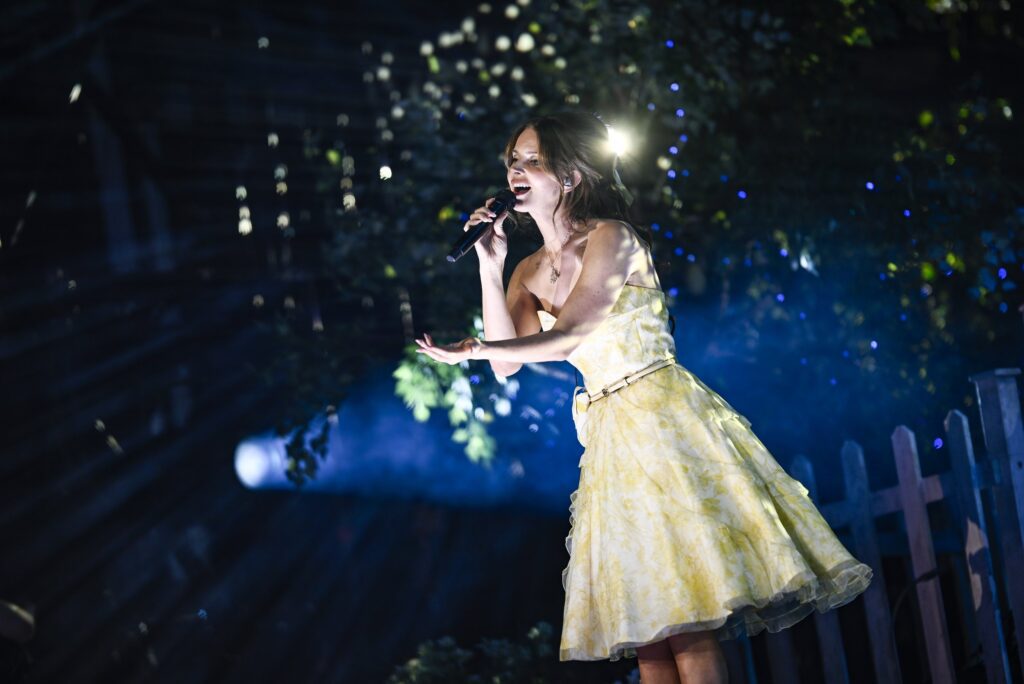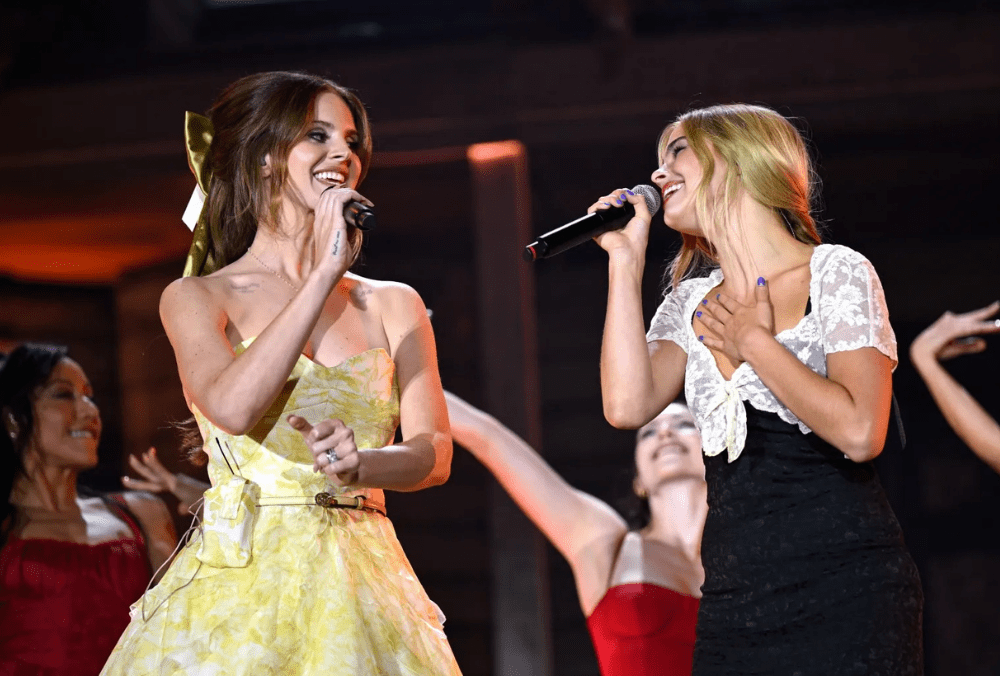In a weekend overflowing with seismic reunions—Oasis, Blackpink, even Black Sabbath—Lana Del Rey didn’t just hold her own; she redefined her space in pop’s constantly shifting architecture. At London’s Wembley Stadium on July 3 and 4, Del Rey returned with a show that was both cinematic and curiously intimate, inviting fans deep into her spiraling world of faded glamour, Americana ghosts, and softly collapsing dreams.
But it was Addison Rae’s inclusion that made these nights feel like a shift—not a spectacle, but a signal.

Rae, who opened both shows and then joined Del Rey during her set, marked her first stadium performance with a mix of calculated precision and raw nerves. Her song “Diet Pepsi,” a glitchy, hyper-glam statement piece, was folded directly into Lana’s main set—twice. Watching Del Rey deliver backing vocals and ethereal harmonies while Rae led was less of a co-sign and more of a communion. It felt like watching the old world of Tumblr-drenched sadcore meet the algorithm age in real time.
Then came “57.5,” another duet between the two artists. The pairing worked more than it should have on paper. Rae’s soft-focus pop persona aligned surprisingly well with Del Rey’s melancholic grandeur. If anything, Del Rey seemed to be extending her lineage—taking the Instagram generation by the hand and walking it back into her baroque, burned-out motel of heartbreak and myth.
Rae’s opening set on July 3 featured seven songs, with two live debuts—“Money Is Everything” and “Summer Forever.” Neither tried to be profound, but both hit a sugary, high-gloss nerve that’s fast becoming Rae’s brand. She’s clearly still forming her voice, but there’s something to be said for how she leans into performance rather than pulling away from it. Rae didn’t try to match the gravitas of the main act—she simply played her role, and that was enough.
Del Rey’s setlist was nearly operatic in arc and tone. From the aching slowness of “Chemtrails Over The Country Club” to the widescreen euphoria of “Summertime Sadness,” she curated a set that leaned into legacy without ever feeling stale. There’s something haunting about her current vocal delivery—less urgent than in years past, but more deliberate. “Young and Beautiful” still lands like a prayer, and “Venice Bitch” remains one of the boldest left-turns in modern pop memory.

And then, because it’s Lana, the encore included a softly surreal version of “Take Me Home, Country Roads.” It didn’t feel ironic. It didn’t need to.
What Del Rey did at Wembley wasn’t about dominance or volume. She invited someone new into her carefully constructed universe and let the audience watch that universe expand. In doing so, she reminded everyone that pop’s most potent moments don’t come from staying still. They come from knowing when to let someone else into the frame.
Addison Rae may still be on the rise, but she just added Wembley to her story—twice. And Lana Del Rey made sure it meant something.






